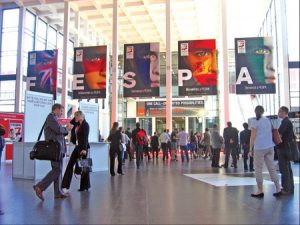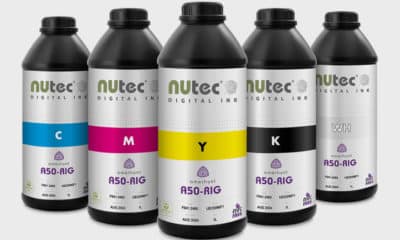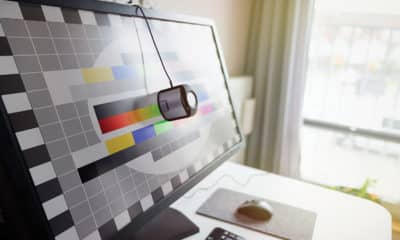Writer Meg Bortin’s June 28, New York Times story said distrust of the United States has intensified across the world, but, overall, views of American remain very or somewhat favorable in 25 of the 46 countries surveyed. Her article reported on Pew Research Center’s April 6, multi-country survey of 45,239 people. The surveys director said anti-Americanism has deepened, but not necessarily widened.
At 10 o’clock on Saturday night, June 9, I was exploring Berlin on a European-style touring bicycle, riding through lower Charlottenburg, a shadowy, apartment-lined, suburb west of Mitte, Berlin’s downtown center. I’d consumed the afternoon, after having closed the FESPA tradeshow, touring the city on a 27-speed, Shimano-equipped, aluminum-frame, Giant Tourer GTS.
FESPA – The Federation of European Screen Printers Assn. – is a trade-association coalition, and a exhibition and conference organizer for the screen- and digital-printing industries. FESPA’s 2007 tradeshow, held in Berlin, June 5 to 9, was Europe’s principal digital- and screenprinting show this year. Officials said 24,232 visitors (not including exhibitors) attended, from 125 countries.
At this impressive mix of worldwide- built technology, machines, inks and software, you heard every language imaginable.
Berlin’s tree-lined boulevards, boutiques, sidewalk cafes and active, nighttime population validate its reputation as Germany’s Paris. The capital of the Federal Republic of Germany, Deutschland; Berlin has 3.5 million people, including drivers who, I found, were remarkably considerate of bicyclists. Even while riding downtown, I didn’t see myself in jeopardy.
Advertisement
I did, at times, however, feel like an American mediator, because, more than ever before, I heard disapproving, but not unkind, comments about the United States.
On Saturday afternoon, in Tiergarten park, while stopping to check my map after having turned north instead of west at Siegessäule column, I encountered Anna, a young woman who converses in English, French and her native German; also, she’ll soon graduate from medical school. Anna was walking an old, blind dog and, having once owned such a dog, I asked about this one. People are more trusting when you’re on a bicycle.
We talked for half an hour about dogs, Berlin, her previous visits to the United States and an upcoming internship in Houston. Anna was 10 years old when the Berlin Wall came down. “You Americans were the heroes,” she said. “We all loved you.”
“Not now?” I asked.
“Not so much,” she said, softly. “Because, now … we think you have a singular view of the world.” I sensed disappointment in her voice and a wish, perhaps, for me to carry the message home.
I reflected on her remarks later, after having received a comparable censure from two friendly Turks while returning from an uphill ride out Bismarck Strasse and cutting south to regain Kurfürstendamm. Along the way, I saw incandescent lamps that illuminated the outside tables of a small, Turkish café. Inside, a high countertop fenced a refrigerator, sink, worktable, fryer and grill. A döner kebap cooker glowed orange in the corner; mocha-colored lamb turned on its spit. I ordered falafels and a Coke, and then drolly advised the countermen that I deserved a Turkish discount.
Advertisement
“You’re no Turk,” the younger one said.
“No, but I used to live there,” I said, explaining that I’d been stationed at Incirlik Air Force Base, in southern Turkey.
“Ah, military,” he said, frowning. “We don’t like the American military.”
“You did when I was there,” I said. “You won’t remember, but our presence kept Nikita Khrushchev out of the Kackar Mountains.”
The boy grinned, awkwardly. The older one, a man close to my age, laughed. “It’s true,” he said, sprinkling cilantro clippings on top of the feta, yogurt, tomatoes, scallions and leafy lettuce that graced the falafels. He then drenched the stack with blood-red sauce, wrapped it in waxed paper and handed it to me.
I asked the younger if he’d been in the Turkish military yet, as all male Turks must. “No,” he moaned, “but I must go soon!” We three laughed.
Advertisement
At FESPA, a South American friend confided he was trying not to buy from U.S. manufacturers. In carefully pronounced, but excellent English, he said his Latin accent caused him trouble in the United States, and he was tired of the discourtesies. Not by business people, he emphasized, but by many in the general population, those he encountered in everyday exchanges.
My wife tells of her experience buying a cup of coffee when she first came to the United States. She asked for sugar, but not recalling the English pronunciation, she used the Spanish intonation. Although the words are similar, the intolerant server opted for hostility over kindness.
Writer Rakel Dink says we’ll only rise by seeing the other in ourselves.
Last year, after having visited Roland DG in Hamamatsu, Japan, I was in Tokyo, up at dawn, walking the city. After several miles, I happened upon a coffeeshop, an important event for me. Trouble was, I don’t speak Japanese. I watched the eyes of two young lady servers widen as I entered the shop. “English?” I said. As a pair, they giggled and shook their heads.
“Coffee?” I pointed at the pot. They nodded. One poured coffee into a tall paper cup, accepted my five yen and gave back two. “Thank you,” she said, timidly.
In Berlin, the old woman who ran the bakery near my hotel didn’t speak English. Twice, she and I chuckled over our Tarzan and Jane conversations. I pointed, she nodded — we both laughed. She taught me the German word for whole wheat bread: “weizenbrot.”
My travel adage is novelist Tennessee Williams’ line, “I have always relied on the kindness of strangers.” Alongside that, I have my own: “Life goes better when you lighten up.”
Vince Cahill Visits FESPA 2007
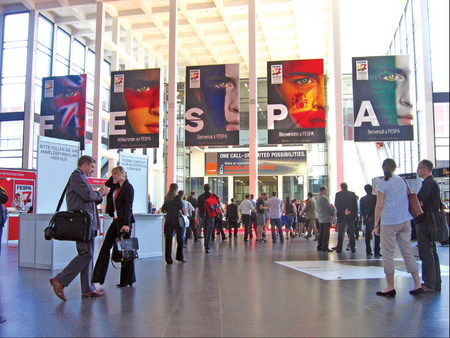


 Photo Gallery2 weeks ago
Photo Gallery2 weeks ago
 Ask Signs of the Times2 weeks ago
Ask Signs of the Times2 weeks ago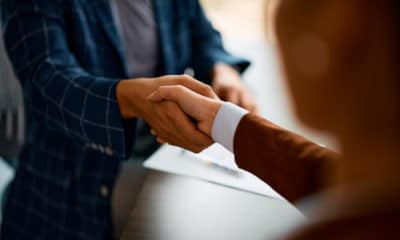
 Paula Fargo1 week ago
Paula Fargo1 week ago
 Real Deal6 days ago
Real Deal6 days ago
 Photo Gallery1 week ago
Photo Gallery1 week ago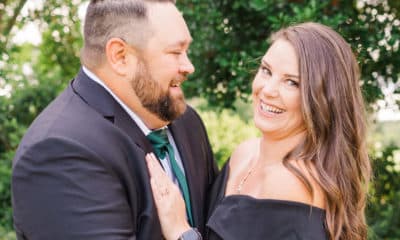
 Women in Signs2 weeks ago
Women in Signs2 weeks ago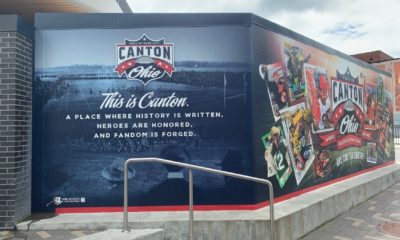
 Projects6 days ago
Projects6 days ago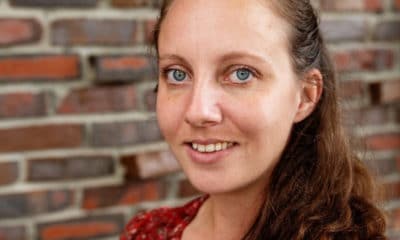
 Women in Signs2 weeks ago
Women in Signs2 weeks ago